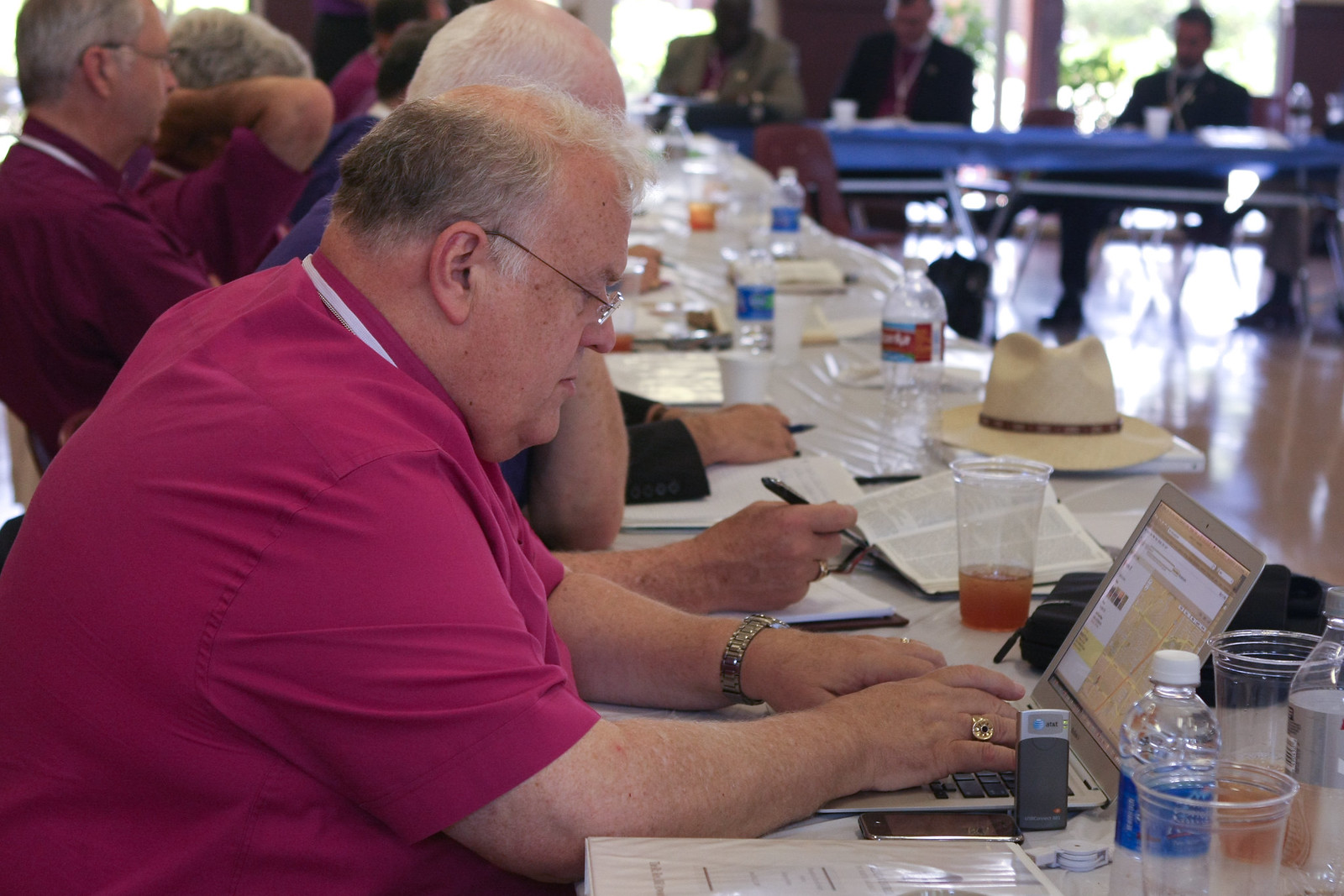A Living Text.
-

A presentment against ACNA Bishop Bill Atwood
It has come to my attention that a presentment was filed against ACNA Bishop Bill Atwood that to my knowledge has never been publicly announced. The presentment was submitted in November 2022 and accuses the bishop of “…conduct giving just probable cause for scandal or offense, including the abuse of ecclesiastical power; willful disobedience of…
-

Sinkhole
A poem from a friend, brought about by the crack investigators at Apostles Anglican Church in Knoxville.
-

Jerome on how the early church used violence
Jerome discusses bishops who had been Arian and then renounced their Arianism. Some people wanted them removed from being bishops, but Jerome says: Deprive the old bishops, they will say, and ordain new ones. The plan was tried. But how many whose conscience does not condemn them will allow themselves to be deprived. Particularly when…
-
Islamic apocalyptic literature and Jews
In light of the pogrom that Hamas carried out on Israeli citizens and others, it is helpful to realize that Islamic apocalyptic literature is almost uniformly filled with hatred for Jews. Their versions of Left Behind, Late Great Planet Earth type books are full of evil towards the Jews. David Cook wrote Contemporary Muslim Apocalyptic…
-

Stewart Ruch and Nephtali Matta
Does the ACNA take violence against women seriously? I’m sure everyone in authority would say “of course” but we judge people by actions, not words. Nephtali Matta is a pastoral resident at Church of the Resurrection, Bishop Stewart Ruch’s church in Illinois. According to one of the presentments filed against Bishop Ruch: According to the…
-
Another update on Bishop Todd Atkinson
A source familiar with the proceedings tells me that “…a bishop cannot “walk away” (resign his orders) during a Title IV process. The canons do not allow it, and that’s a feature not a bug. There was already an investigation and Atkinson’s case remains active before the Court for the Trial of a Bishop. Those…
-
Church of the Redeemer (St. Paul) Departs UMD
Yesterday I wrote about Restoration Anglican leaving the Upper Midwest Diocese (UMD), but they were not alone in doing so. Church of the Redeemer, pastored by Paul Calvin, also left, but for a different diocese. They are going to the Anglican Diocese of Pittsburgh (ADP) after investigating the Diocese of the Living Word. On June…
-
Restoration Anglican (Minneapolis) Departs UMD
Restoration Anglican (ACNA) in Minneapolis, pastored by Rick Stawarz, has departed the troubled Upper Midwest Diocese for the Diocese of the Rocky Mountains. I would speculate that this is all about Bishop Stewart Ruch’s disastrous mismanagement of past situations, including the Josh Moon debacle. The news as shared follows: Dear Restoration,I am happy to share…
-
ACNA Bishop Todd Atkinson Gone?
The word is that Bishop Todd Atkinson walked away from the ACNA rather than face an investigation and trial. Where is the press release about this? Is it true? Recall that Bishop Ruch was a primary backer for Atkinson and Via Apostolica to enter the ACNA, a move which was a disaster. It is another…
-
Rubber stamp vestries
Anglicans like to claim that bishops and vestries are checks against clergy who abuse their authority. In reality, people selected for these roles are filtered out before election and are almost always good “company men” (and women) who will seldom, if ever, stand up to the rector. Add to that the fear of being seen…